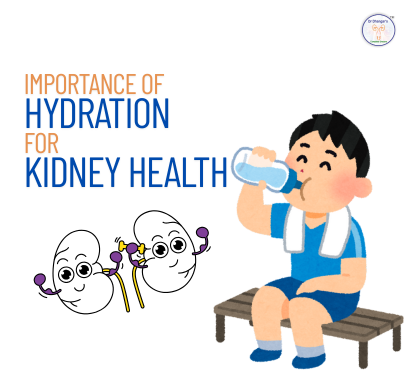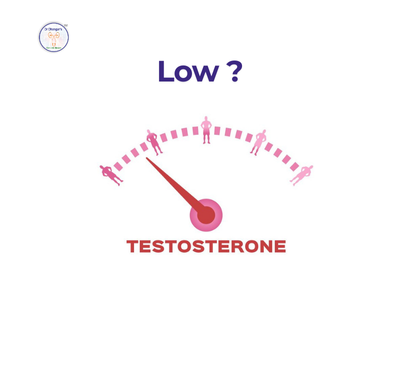Our kidneys are the body’s natural filtration system. Every day, these two bean-shaped organs quietly remove waste, balance fluids, regulate blood pressure, and even help produce red blood cells. While most of us understand that kidneys are vital, not everyone realises how deeply their health is tied to one simple habit: staying hydrated.
Water isn’t just for quenching thirst — it’s the lifeline that keeps your kidneys functioning smoothly. Without proper hydration, these organs can’t effectively filter toxins, and over time, this can lead to infections, kidney stones, and even chronic kidney disease (CKD).
In this detailed guide, we’ll explore why hydration is key to kidney health, the science behind it, how much water you really need, and practical ways to keep your kidneys in top shape.
Why Water Matters for Your Kidneys
Your kidneys filter about 50 gallons of blood every single day, producing around 1–2 litres of urine to flush out waste products like urea and excess salts. Water is the medium that makes this process possible. Without enough water:
- Urine becomes concentrated, making it harder for the kidneys to remove waste.
- Minerals can crystallise, leading to kidney stones.
- Toxins may build up, affecting other organs and overall health.
Key takeaway: Water is not just a beverage; it’s the transport system for kidney detox.
The Link Between Dehydration and Kidney Problems
1. Kidney Stones
When the body is dehydrated, urine volume decreases and becomes concentrated, making minerals and salts more likely to form stones. In India, hot weather and diets high in oxalates (found in spinach, tea, and certain pulses) make kidney stones especially common.
2. Urinary Tract Infections (UTIs)
Adequate water intake helps flush bacteria from the urinary tract. Without enough fluids, bacteria can multiply, leading to UTIs, which, if untreated, can spread to the kidneys (pyelonephritis).
3. Chronic Kidney Disease (CKD)
Long-term dehydration can strain the kidneys and worsen CKD progression. While water alone can’t prevent CKD caused by other factors like diabetes or hypertension, it plays a crucial role in overall kidney function.
How Much Water Do You Really Need?
There’s no one-size-fits-all answer, but a good starting point for healthy adults is:
- Men: 3–3.5 litres per day
- Women: 2.5–3 litres per day
Factors affecting water needs:
- Climate (hotter regions like much of India require more intake)
- Physical activity
- Health conditions (some kidney diseases require fluid restrictions—always follow medical advice)
Pro tip: Don’t wait until you’re thirsty to drink water; thirst means you’re already mildly dehydrated.
Signs You Might Be Dehydrated
- Dark yellow urine
- Dry mouth or lips
- Fatigue
- Dizziness
- Reduced urination
A simple test is to check your urine colour — pale yellow usually means you’re well-hydrated.
Best Sources of Hydration
While plain water is best, other sources help too:
- Fresh fruits (watermelon, oranges, cucumber)
- Coconut water (rich in electrolytes, but drink in moderation if you have kidney issues)
- Herbal teas (caffeine-free)
- Soups and broths
Avoid: Excessive sugary drinks, cola, and high-sodium beverages — these can harm kidneys over time.
Hydration and Kidney Stone Prevention in India
Given the high incidence of kidney stones in India, hydration is a primary prevention method. Research shows that drinking enough fluids can reduce stone recurrence by up to 50%.
Tips for stone prevention:
- Spread water intake throughout the day
- Drink a glass before bed and after waking up
- Increase water intake during summer and after exercise
Myths About Hydration and Kidney Health
- “Drinking more water always means healthier kidneys.”
Not necessarily. Patients with advanced kidney disease or heart problems may need restricted fluid intake. Always consult your doctor. - “Only water counts.”
False — fruits, vegetables, and healthy beverages contribute too. - “Clear urine is always best.”
Very clear urine all the time might mean overhydration, which can cause electrolyte imbalance.
Practical Tips to Stay Hydrated
- Carry a reusable water bottle everywhere.
- Set phone reminders every hour.
- Infuse water with lemon, mint, or cucumber for flavour.
- Monitor urine colour as a hydration guide.
- Pair water intake with daily routines (after brushing teeth, before meals, etc.).
Hydration Across Different Age Groups
- Children: Often forget to drink water; encourage through fun cups or bottles.
- Adults: Balance between work stress and hydration.
- Elderly: May have reduced thirst sensation; set reminders for regular sips.
The Bottom Line
Hydration is one of the simplest, most cost-effective ways to protect your kidneys. By making water a priority every day, you’re not just keeping your kidneys healthy — you’re supporting your entire body.
FAQs
- Can drinking too much water harm my kidneys?
Yes, excessive water can cause a condition called hyponatremia (low sodium levels), which is dangerous. Stick to recommended amounts unless advised otherwise by your doctor. - Does coffee count toward daily hydration?
In moderate amounts, yes. However, caffeine has a mild diuretic effect, so balance coffee intake with extra water. - Is bottled mineral water better for kidney health?
Not necessarily. Clean, filtered tap water is usually fine. For those with certain kidney conditions, high mineral content in bottled water might need monitoring.




